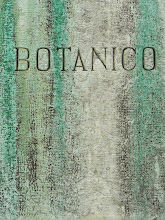John is proud of the chard, beans and fennel he has nurtured in a corner of a north London community garden. For him, the plot is more than a pretty oasis: "It gives me a sense of belonging that I don't get anywhere else. . . . it helps me forget about the past." The 21-year-old, whose woolly hat slips back to reveal the two-inch scar on his forehead from the pistol-whipping he received in 2001, is an asylum seeker. He shares this patch of ground with nine men from Kenya, the Congo, Iran, Iraq and Russia, who are also seeking refugee status.
The Ugandan fled his home five years ago after his father was killed by a gang, who also attacked John and shot him in the leg. After arriving at Heathrow airport, John, then only 16, was abandoned by the guardian who was supposed to arrange a school and home for him. He had no family in the UK (his mother died 10 years earlier) and was mistrustful of people. Eventually he made contact with social services, who found him temporary accommodation. But he suffers from depression, aggravated by the uncertainty over his status, unable to work or claim the same benefits as refugees or British citizens. "It was hard being here; I thought of all these things I'd lost and I found it hard to cope."
But he says meeting fellow asylum seekers through the Room2Heal organisation, part of the Helen Bamber Foundation, which advises and supports refugees and victims of torture, has helped him: "It gives you a family feeling. There are things I can discuss with them that I couldn't with other people." Every Friday without fail John travels across London by bus from Crystal Palace to Islington's Culpeper community garden to tend the plot of land and, especially, to look after the small fir tree he planted in memory of his father.
Psychotherapist Mark Fish set up Room2Heal 18 months ago after working in northern Uganda, where he established a retreat for religious leaders. Alongside the gardening group, Fish also runs a group counselling session that allows the members, who are aged between 20 and 50, to share their problems. Fish says the idea for a plot of land in the garden was originally to provide a space for contemplation and relaxation but its significance has grown: "These people don't have homes. This bit of land is their own. One member told me proudly 'I'm a landlord'; when he said that, he looked radiant."
Culpeper, founded in 1982, has grown from a rubbish tip into an attractive site with ponds, rose pergolas and herb gardens. It is a serene sanctuary from the surrounding traffic and busy shopping area. Dependent on charitable grants for its funding, Culpeper is home to 50 plots tended by community groups such as Room2Heal, as well as children from a local primary school and nearby residents who do not have gardens. Looking after the patch is a communal effort carried out by two garden workers, a number of plot holders and the volunteers.
Community gardens have, in some form or other, existed since cities , although the movement gathered pace in Britain and the US at the end of the 19th century. Then areas were cultivated by local workers with the aim of providing free food and exercise. After the second world war, many gardens were built on, or became derelict sites.
Jeremy Iles, director of the Federation of City Farms and Community Gardens, to which Culpeper belongs, says such gardens are a good way of developing community cohesion: "They have an impact that is different to the services provided by local authorities . . . There's a social value far beyond just gardening."
Culpeper holds a number of activities for locals, including a pensioners' tea party, arts projects for children and Hallowe'en parties as well as plant sales. Fish observes that the plot helps members make connections with the community and shows locals that "asylum seekers are not the dark figures they're made out to be in the press".
Last year Room2Heal members built a path on their patch of garden to symbolise the journey they had been on. At first it was straight. But, after much discussion, they reset the paving stones in a wiggly line because it better represented their struggle. At the end of the path they plan to build a small bench and hope that people from neighbouring plots as well as visiting locals will sit in their patch.
Kate Bowen, a worker at Culpeper, believes Room2Heal is an asset to the garden: "They're friendly. . . they make an effort to be part of the community, especially with their offers of barbecued chicken and tea." John says he regularly gets horticultural tips from holders of neighbouring plots.
The number of community gardens has grown recently - membership of the federation has grown from 120 groups seven years ago to 360 now - which Iles attributes in part to the recognition of their social value. But it is also due to the growing interest in food miles, organic produce and healthier lifestyles.
Health is one of the reasons James, a 46-year-old Room2Heal member, who uses a walking stick after being injured in police detention in Kenya, likes to come to the garden. Working on the plot helps to keep him mobile - he does the planting jobs so he can kneel down. But the benefits are beyond physical: "I felt dead until I came into this group. If I feel down, it transforms me to come to the garden." in Financial Times, 26 de Abril de 2008



Sem comentários:
Enviar um comentário